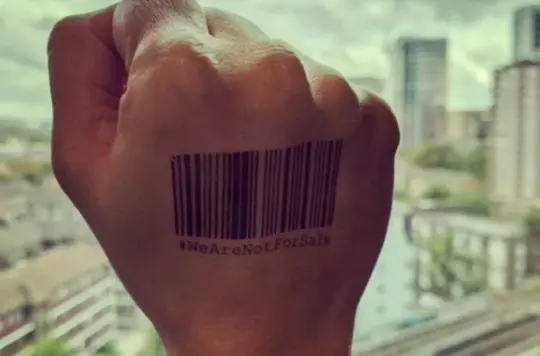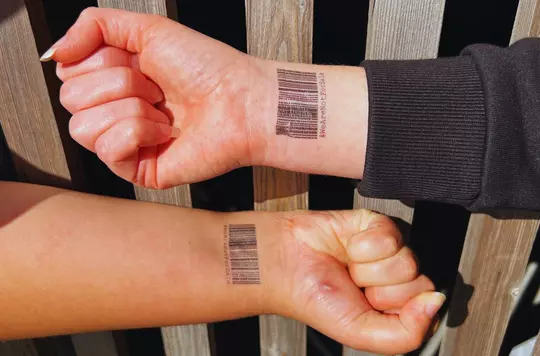19 October 2024
‘Organised criminals are always one step ahead’
Major Kathy Betteridge

Major Kathy Betteridge talks to George Tanton about the Army’s fight to make modern slavery more visible.
This year marks the 13th year The Salvation Army has worked with partners across England and Wales to support adult survivors of modern slavery and human trafficking.
The Illegal Migration Act, although not implemented, threatened to prohibit potential victims of human trafficking arriving by irregular and illegal means from being entered into the National Referral Mechanism, the government’s system to identify and protect victims.
This would have left people excluded from the support they needed, but has also left others too afraid to seek help from the authorities. These people can then be criminalised or end up back in the hands of their oppressors to be trafficked again.
‘The challenge is trying to acquire the information and documentation that will prove somebody is a victim,’ explains Major Kathy Betteridge, director of the territory’s Anti-Trafficking and Modern Slavery (ATMS) Department. ‘Victims have been groomed by the perpetrators not to speak to the police or other authorities.’
The threat of violence and repercussion prevents many victims from doing so: ‘Perpetrators play on that fear constantly, sometimes beating victims into submission. We have clients who are physically and emotionally traumatised from these experiences.’
The Salvation Army is calling for the government to restore survivors’ rights by reassessing the policies that may be inadvertently pushing victims further into the shadows.
‘What we have to do is encourage the immigration issue to be separated from the modern slavery issue,’ she continues. ‘We’re encouraging the government to go down the route of viewing modern slavery as a safeguarding issue.
'Many migrants come to this country with the promise of a job or with the hope that they will receive an education. They have then been trapped and caught up in modern slavery.’
To understand the complex nuances of modern slavery and the legislation surrounding it, it is essential to eradicate stereotypes of trafficking victims. It would be wrong to assume, for example, that only displaced people from conflict zones or uneducated and vulnerable people are prey to the people traffickers.
‘We have people in our services who are highly educated,’ she continues. ‘The organised criminals know who to target, and they will target an individual who wants to further their career and send money back home to their families.’
If the Illegal Migration Act were implemented, a trafficked individual arriving to the UK from a designated ‘safe’ country, such as Albania, would have their asylum claim dismissed.
This and the Safety of Rwanda legislation have both contributed to the wider fear that is pushing victims underground and out of sight.
Major Kathy notes that the strategies of human traffickers have also changed in recent years, with criminal networks infiltrating the UK’s high streets. This was highlighted in the recent documentary Slavery on the High Street, which is available on BBC iPlayer until September 2025.
‘The care sector is one of those areas,’ she explains. ‘Organised criminals are always one step ahead, which means we need to be one step ahead of them. They will always be finding ways to continue trafficking people, because to them human life is highly profitable.’
‘Human life has been created by God,’ she continues. ‘Every individual is important to God and therefore should not be abused by another person. As Christians, we have a responsibility to help others and recognise the importance of human creation.’
Since 2023, the ATMS team has further expanded its international work, growing its Beyond programme. Working in 134 countries alongside 50 partner organisations such as the Medaille Trust, the programme relies on the Army’s global network to rehabilitate survivors and reconnect them with their families.
Major Kathy emphasises the importance of educating communities vulnerable to the snares of the human traffickers, and to question proposals from strangers: ‘If you are approached by somebody offering you a job in Europe, is it actually a genuine job?’
Keeping the issue of human trafficking in the public eye also remains a major focus for Major Kathy and her team.
‘It’s important for us to make sure that the public can recognise the signs,’ she asserts, ‘and for them to report it.’
Interview by

George Tanton
Editorial Assistant, Salvationist
Discover more

Our vision is to bring an end to slavery, fight for social justice and respond with compassionate care.

Stand in solidarity with survivors and support the Army’s #WeAreNotForSale campaign for Anti-Slavery Day on 18 October.

Find out how you can stand in solidarity with survivors this Anti-Slavery Day (18 October).

